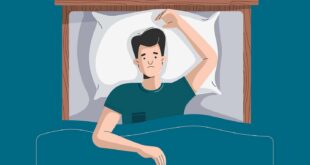A person having their first panic attack from Anxiety.
A person having their first panic attack on anxiety can think they’re having a heart attack. Someone calls an ambulance, they are taken to Accident and Emergency, and after the usual tests they are told that it’s panic. The most common reactions to this news are embarrassment and disbelief, but at least they’ve been seen by a doctor and can start the process of coming to terms with what has happened to them.
At the other end of the scale, some people live with their illness for years without having it properly diagnosed, without talking to anyone about it and without getting any help.
Seeing the doctor
Quite simply, everyone needs to see a doctor to discuss their symptoms and get a diagnosis. There are a few physical illnesses whose symptoms are just like Anxiety so you need to make sure that you’re not suffering from one of those. There is no point in reading this book and doing the work we suggest if, for instance, you are suffering from a thyroid problem that can be treated by tablets.
So if you haven’t seen your doctor yet, now is the time to do so. If you are nervous about doing this, consider taking someone sympathetic along with you for support. If you are housebound, ask for a home visit.
The important thing to remember is, that if it turns out you do have an Anxiety disorder, it is an illness and it is not your fault, so you really don’t need to be embarrassed.
Sometimes people worry that their medical records will always show that they’ve had a problem, and this will go against them in some way. And yet these problems are extremely common, so there must be
thousands of people with similar records who are now leading happy and fulfilled lives.
Wouldn’t you like to be one of them?
What will the doctor do?
You can expect the doctor to listen to what you have to say, and ask you a few questions. He or she will probably do a few simple checks to rule out a physical cause. If a blood test is suggested and needles are a problem for you, then say so. Even if the blood test has to wait for another visit, you will have made your first steps towards recovery.
How shall I talk to the doctor?
Sometimes people worry about how they are going to explain what they are feeling. It might help to make a list beforehand of all the sensations you experience. If you need to talk about one incident, then don’t talk too much about the build-up to it. A simple statement will get the conversation started and the doctor can ask you questions to get more information. ‘I was standing in the queue at the bank when I suddenly felt terribly sick, my heart started pounding and I felt like my legs wouldn’t hold me.’ If you need to describe a continuous feeling, again keep it simple: ‘I feel so shaky every morning that I just can’t get out of bed, and I get worse as the day goes on.’
‘I keep needing to check that the smoke alarm works, I know it does, but sometimes I go back 20 times to it. It can take me all morning to get past it.’ Remember these remarks are just to get you started. You may not yet feel able to ask the questions that really haunt you: Am I going mad? Will my heart stop beating? Never mind. You’ve made a start.
Depression
Many people with Anxiety also suffer from clinical depression. For some people the misery of Anxiety is the cause of their depression, but for others the depression comes first, and Anxiety is a secondary effect of the depression.
Depression is not just a case of feeling low, or of needing to cheer yourself up. Clinical depression is an illness. Here is a list of symptoms (you are unlikely to experience all of them):
- depressed mood most of the day, nearly every day
- tiredness. No energy
- feeling guilty, feeling worthless, blaming yourself
- taking no pleasure or interest in your usual activities
- problems with memory or concentration
- changes in appetite and sleeping pattern
- withdrawal from people and social activities
- restlessness
- irritability and anger
- feeling pessimistic and hopeless
- thinking about death, or contemplating suicide.
Mild depression can be treated through self-help – exercise is particularly helpful. More severe depression will need help from your doctor, in the form of anti-depressant tablets or visits to a counsellor.
 Therapy for anxiety Therapy for anxiety
Therapy for anxiety Therapy for anxiety



